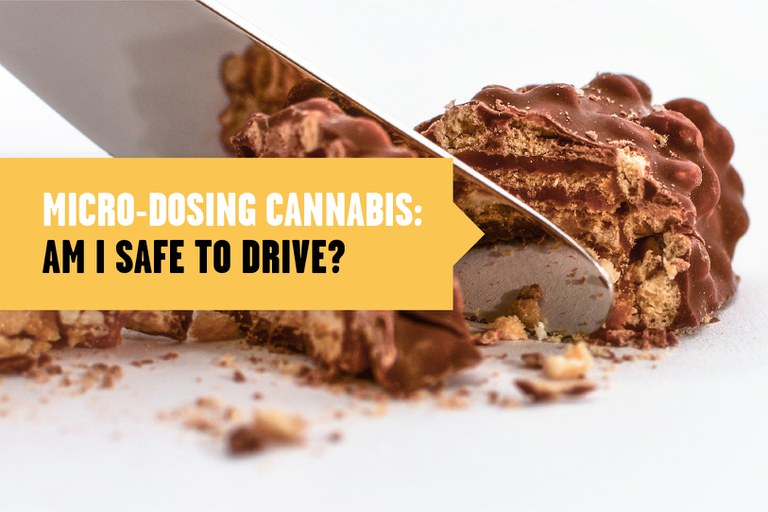What is microdosing and am I safe to drive?
Microdosing is a growing trend among cannabis consumers — but using small amounts of cannabis can still lead to impaired driving and a DUI.

Microdosing, or consuming minimal amounts of an intoxicating substance, is a growing trend nationwide. Psychedelic mushrooms (psilocybin), MDMA and LSD are being used in recreational and therapeutic settings and studied at research universities to treat problems like depression, anxiety and PTSD.
Microdosing cannabis is also becoming more popular here in Colorado and throughout the U.S. Some chronic pain patients and recreational users want the palliative effects without getting too high — or to maintain a “functional high” — by taking the lowest effective dose.
If you’re microdosing cannabis, are you safe to drive?
So where does this leave people when it comes to deciding whether or not they’re able to drive? It may be a tough decision, but we think the answer is simple: If you feel different, you drive different.
What does the science say?
The science and research behind marijuana and physical impairment is well established at this point. Cannabis measurably and significantly impairs a driver’s reaction time and ability to do complicated tasks like driving. However, aspects like tolerance, potency and how long it takes an individual to “sober up” are less conclusive and vary from person to person.
Active Delta-9 THC, the impairing compound in cannabis, isn’t metabolized at the same rate across the board like alcohol is. To see more studies on cannabis and driving, visit our research page on the DriveHighDUI.com website.
It can be hard to tell how much you can “safely” consume or if you’re too impaired to drive — or how long you should wait to be sober enough to drive, even if you’re consuming small amounts. So why take the risk? The safest solution is to not drive if you plan to consume any amount of cannabis.
It may seem like a tough call, but it shouldn’t be
The conversation around cannabis consumption and driving continues to be challenging, with many strong opinions on both sides of the issue. But with different tolerances and metabolization rates across every individual, it's hard to pin down a number regarding how much is too much.
The bottom line is driving high should never be an option. Hundreds of people are dying on Colorado roads due to impaired driving. Driving under the influence of any impairing substance simply isn’t safe.
Poly-drug impaired driving in Colorado is also on the rise. Even mixing half an edible with one IPA could put a driver at risk. Clinical research from the American Association for Clinical Chemistry shows that “...the simultaneous use of alcohol and cannabis produces significantly higher blood concentrations of cannabis's main psychoactive constituent, THC, as well as THC's primary active metabolite than cannabis use alone.”
If you’re pulled over and the law enforcement officer deems you impaired, that is legal grounds for arrest — and a DUI. Risking the consequences and driving impaired under one or multiple substances is not worth it.
Err on the side of caution.
Consuming marijuana, alcohol or both is a personal choice and legal in Colorado. But when you drive under the influence, you put yourself and others on the road in danger, and risk getting a DUI that can cost more than $13,000. Leave your car at home, find a sober ride, or stay in and enjoy yourself if you plan to consume cannabis.
